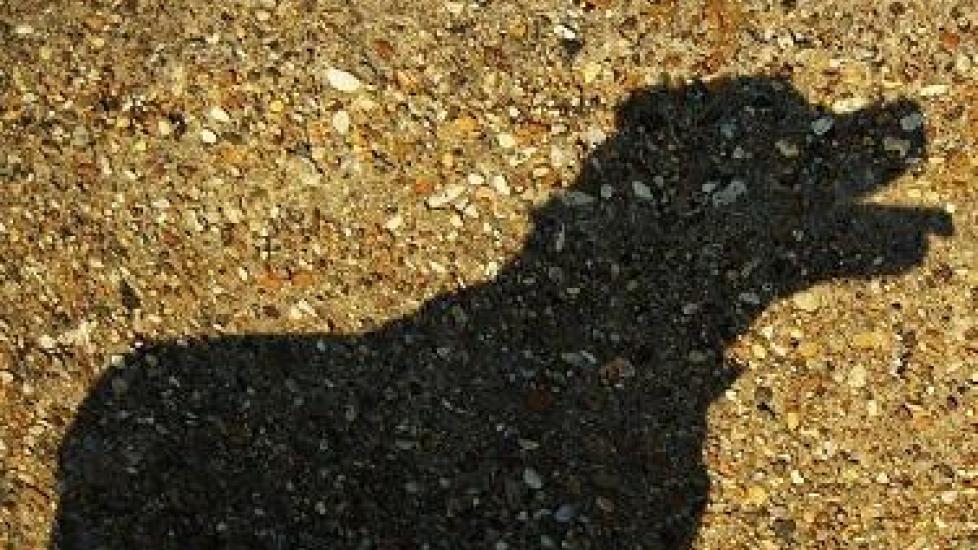How To Know If Your Pet Needs A Necropsy (And What's A Necropsy Anyway?)
Have you ever had cause to have your veterinarian undertake a necropsy? Has your veterinarian ever offered one? Maybe you have but you’re still not quite sure what the word "necropsy" means.
"Autopsies" are for humans as "necropsies" are for animals. It’s a procedure we undertake by way of gaining more information on your pet’s disease ... after he’s dead, when we no longer have to tread so delicately.
Perhaps you’re wondering why you would ever want one of these gruesome-sounding procedures for your pet, or why your veterinarian would ever think to ask permission for such a horrific thing.
Recommended Pet Products
- Nutramax Proviable Probiotics & Prebiotics Digestive Health Supplement for Dogs & Cats, 160 count$89.98Chewy Price
- Fera Pets USDA Organic Pumpkin Plus Fiber Support for Dogs & Cats, 90 servings$34.95Chewy Price
- All Four Paws Comfy Cone E-Collar for Dogs & Cats, Black, Small$20.24Chewy Price
- Virbac Epi-Otic Advanced Ear Cleaner for Dogs & Cats, 4-fl oz bottle$12.34Chewy Price
If you are, you should know that you’re not alone. Religious beliefs and respect for the dead being what they are, there are plenty of legitimate reasons to decline to participate in having your pet opened up post mortem. Never fear, your wishes in this regard will always be respected in veterinary medicine.
And yet there remain many compelling reasons to perform necropsies. Here are the primary reasons why:
- Because we may not know why or how your pet died. While you may shrink from wanting to know the grisly details, it matters to us. After all, the whys and hows of pet death can markedly influence how we treat animals similarly injured and/or diseased. Whether it’s a study you agree to participate in or a simple my-vet-needs-to-learn-so-I’ll-agree type situation, necropsies are important. Moreover, agreeing to a necropsy does not mean you sign on to knowing the results. That’s always your call.
- Because there may be a legal reason to do so. Did your pet have a reaction to a drug? Did his sutures break down? Was the wrong tube tied? Sure, knowing the real reason is important for our medical knowledge too, but sometimes you wonder if your pet may have been poisoned, abused or treated incorrectly.
But it’s not always easy to know when your pet needs a necropsy. Here are some obvious examples:
- When your pet’s been suffering an undiagnosed disease.
- When it’s not clear why he suddenly died.
- When your veterinarian asks for your permission because he/she has a scientific interest in observing the results of the injury or disease process that led to your pet’s death (and you're comfortable with this).
- When there’s a legal reason to do so (Think CSI for pets).
- When public health is at stake, as with an animal suspected of harboring rabies.
And then there are the hows to tackle. This isn’t always so easy. Most of the time I find myself asking for permission from the owners of the deceased. This is a delicate area to tread, and so you know, not a moneymaking proposition. I simply want to investigate the damages for my own personal medical knowledge — not for a fee.
But from an owner’s point of view, these are the issues you need to know should you specifically choose to have a necropsy performed:
- If your veterinarian doesn’t offer, it’s usually because necropsies can be expensive to perform. It doesn’t mean we don’t care and therefore choose not to spend the money, it’s most often because we are comfortable with our knowledge of X disease or injury and we’re confident that an examination of the post-mortem details won’t shed much light on the situation.
- Therefore, you may have to ask for a necropsy. Again, most veterinarians won’t automatically offer one.
- If you do have to ask, you may find that your veterinarian will charge you a fee.
- Necropsies can be expensive, especially if there’s a legal issue involved. In these cases, it’s not that we’re protecting our colleagues or your pet-abusing neighbors, it’s simply that we’re aware that to perform a "forensic" necropsy requires that we take many tissue samples for toxicology and histopathology, or that we refer your pet’s remains to a board-certified veterinary pathologist (I prefer the latter option if there’s a legal matter at hand). Expect to pay $100 to over $1,000, the price depending on who’s undertaking the procedure and how many laboratory tests will be run.
- Sometimes when you sign a statement authorizing your veterinarian to perform a euthanasia, you’re also agreeing to a necropsy. If you specifically don’t want one, please read the fine print when you sign anything at the time of your pet’s death.
- It may be that the decision to necropsy or not is out of our hands completely. This is rarely the case, but it can happen when a matter of public health is at hand, as when a seizuring stray cat bites a child.
Just remember, necropsies are important. If your veterinarian asks your permission, we’ll understand if you refuse. But also know that we have much more on our minds in these cases than the desecration of your pet’s remains. We may not always ask in the most diplomatic way possible, but please be aware, we do have the betterment of animal medicine in mind when we do so.

Dr. Patty Khuly




